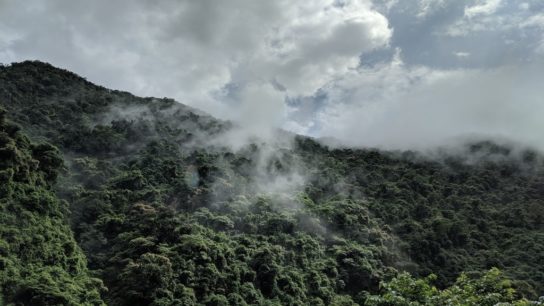While many believe the UN-Water Conference 2023 spurred political momentum, governments must now come together to fulfil the voluntary commitments set out in the new Water Action Agenda and avert a global water crisis.
—
More than 2,000 government representatives, scientists, academics, Indigenous people, and youth delegates agreed on a new agenda outlining a series of action-oriented commitments to stave off the global water crisis on the final day of the UN Water Conference 2023 in New York.
Despite warnings of the unimaginable risks humanity is taking by delaying action, last week’s conference – the first meeting on water in nearly half a century – did not end with an internationally-binding treaty like the Paris Agreement in 2015 or the long-awaited framework to protect the world’s biodiversity at COP15 last December.
Instead, the Water Action Agenda agreed upon comprises voluntary commitments and water-related plans submitted by nearly 700 grounds including local and state governments, NGOs, and companies before and during the conference that advocates hope will culminate into binding agreements at this November’s COP28.
Projects range from protecting sanitation workers’ rights and strengthening the financial resilience of all water sector organisations and institutions to country-specific plans including mapping the Hague’s water system and monitoring micropollutants and water quality in the Itaipu Reservoir located on the border between Brazil and Paraguay.
UN Secretary-General António Guterres called on governments to translate these projects into forward-looking actions, adding that “all of humanity’s hopes for the future depend on bringing the Water Action Agenda to life.”
Dutch special envoy to the United Nations Henk Ovink, whose country co-hosted the conference, said that while the Agenda is not enough to solve the issues arising from a “fragmented water governance [and] finance across the world,” the UN Water Conference “is the beginning of a rippling effect across the world.”
According to the World Health Organization (WHO), over 2 billion people – about one-fourth of the world population – live in water-stressed countries and have access only to contaminated drinking water sources, which pose huge health risks and can result in diseases such as cholera, dysentery, typhoid, polio, and diarrhoea. The latter alone is estimated to cause 485,000 deaths each year, while unsafe water is linked to about 1.2 million deaths, the majority of which occur in low-income countries.
A report published ahead of last week’s conference suggested that demand for freshwater will outstrip supply by about 40% by the end of the current decade, leading to a global water crisis that could have irreversible repercussions on ecosystems and societies worldwide unless immediate action is taken.
You might also like: World Faces 40% Shortfall in Freshwater Supply by 2030, Experts Warn Ahead of UN Water Conference


















